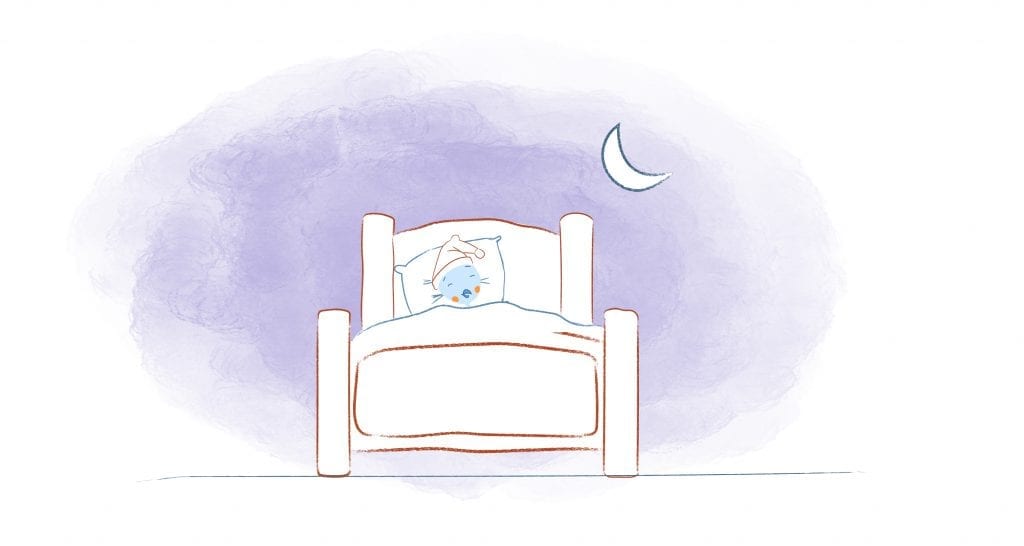

It’s no secret that sleep deprivation can hurt your productivity. Maybe you have a hard time getting to sleep. Maybe you have a million things on your to-do list and sleep is pretty low on the priority list.
Regardless of the reason, getting the proper amount of uninterrupted sleep can supercharge your day. According to Mayo Clinic, adults need 7-9 hours of sleep per night. Lack of proper sleep can lead to crankiness, slower work speeds, and difficulty making timely decisions.
While it’s easy to just say ‘get some sleep’, there are many factors that could be interrupting your sleep and productivity patterns the following. Whether you’re able to narrow down a strict bedtime or not, here are 6 sleep tips to help you become more productive during the day.
1. Avoid Caffeine
Caffeine can be great in the morning, but not so helpful at night. I’m not a heavy coffee drinker, but I enjoy an occasional cup in the morning as it gives me a much-needed boost to power through some of my toughest tasks. If you’re not able to get your coffee in during the daytime however, you might as well wait until the following day since consuming it too late in the day can affect your sleep.
Caffeine can stay in your system for up to 14 hours. If you’re drinking soda, energy drinks and coffee later in the day, it’s no wonder why you may feel restless when it’s time to go to bed. If you’re looking forward to a late-night work session, try to take care of your most mentally challenging tasks during the day so you won’t feel tempted to load up on caffeine to help you stay motivated and focus.
If you must have something later in the day, go for decaf.
2. Limit Screen Time
You’ve probably heard that it’s not good to watch TV or look at your phone before going to bed, but you may not know why. Backlights from phones and devices can act to suppress melatonin. This is the chemical in your body that tells it to sleep.
It can be tempting to scroll through social media when you lay down each night, but the best thing to do is put your phone on ‘do not disturb’ mode and/or place it in the other room.
Try to get all your screen time in at least 60 minutes before you get ready to go to bed so you can fall asleep quicker and enjoy a better quality rest.
3. Avoid Late Naps
Late naps never do anyone any good. Sure, naps can be a great way to squeeze in a quick rest so you can recharge, but timing is everything. Every time I take a late nap I always end up regretting it because my sleep cycle gets all messed up and I end up staying up much later.
Or, I have a hard time getting back up and simply opt to sleep through the night. If you had plans to do a few more things after your nap, this could really throw off your schedule. If you’re able to squeeze in a nap, there’s nothing wrong with getting it out of the way early.
The National Sleep Associations suggests taking your naps between 2:00 pm and 3:00 pm at the latest. If you’re still feeling tired after that time, you should just plan on getting to bed earlier.
4. Plan Out Your Day to Clear Your Mind
Have you ever got ready to go to bed but found out you couldn’t truly rest because you had a million things running through your head? Some busy entrepreneurs simply forego sleep due to the fact that they have so much going on.
It’s important to do a giant brain dump before bed to pour out all your ideas and plan out the following days so your mind is clear and you’re ready to rest. Trust me, you don’t want to be having dreams about clients and project deadlines.
Go through your calendar and organize upcoming tasks and meetings. You can also brainstorm any ideas you have for upcoming projects or tasks that will be coming onto your radar soon.
I like to use a planner as well to plan out what the next day will look like for me and jot down any must-dos or errands I’ll need to run.
5. Sleep in Increments
The brain generally goes through 5 phases when the body is sleep. REM sleep makes up about 25% of your sleep cycle and takes place during the first 70 to 90 minutes of you falling asleep. This is when your body and brain become energized and dreaming can occur.
Your sleep cycles generally last/rotate every 90 minutes which is why it’s best to get sleep in 1.5-hour increments. If you’ve ever gotten a ridiculous amount of sleep one night and still felt tired and groggy in the morning, you can probably relate. For example, 7.5 hours of sleep can actually be better than 8. If you want to sleep longer, you might as well add an extra 1.5 hours and sleep for a total of 9 hours.
Be sure to find a happy medium for your sleep cycle and try not to deviate from it too much.
6. Activate Your Evening Routine
An evening routine can help you properly wind down and get ready for a good night’s sleep. Plus, an effective evening routine can only enhance your productivity levels the following day.
Normally, you’ll want to activate your evening routine at least 1 to 2 hours before heading to bed. Take care of things that will make the next day easier whether that means picking out your clothes, preparing meals, cleaning your email inbox, etc.
The goal is to get a good night’s sleep and not to feel an overwhelming amount of stress and pressure as you wake up.
If you’re looking to get more done each day without sacrificing additional time and energy, your sleep habits can be a major factor in helping you achieve that goal.
Do you feel you get enough sleep to be productive each day? Are you doing any of these things to improve your sleep habits and evening routines?











Choncé Maddox
Choncé Maddox is a professional writer who recently left her job in the web design industry to produce killer content and manage her own writing business full time. She is passionate about helping entrepreneurs be more productive and create a life they love by doing fulfilling work. On the side, she runs a podcast and blogs about getting out of debt at MyDebtEpiphany.com.